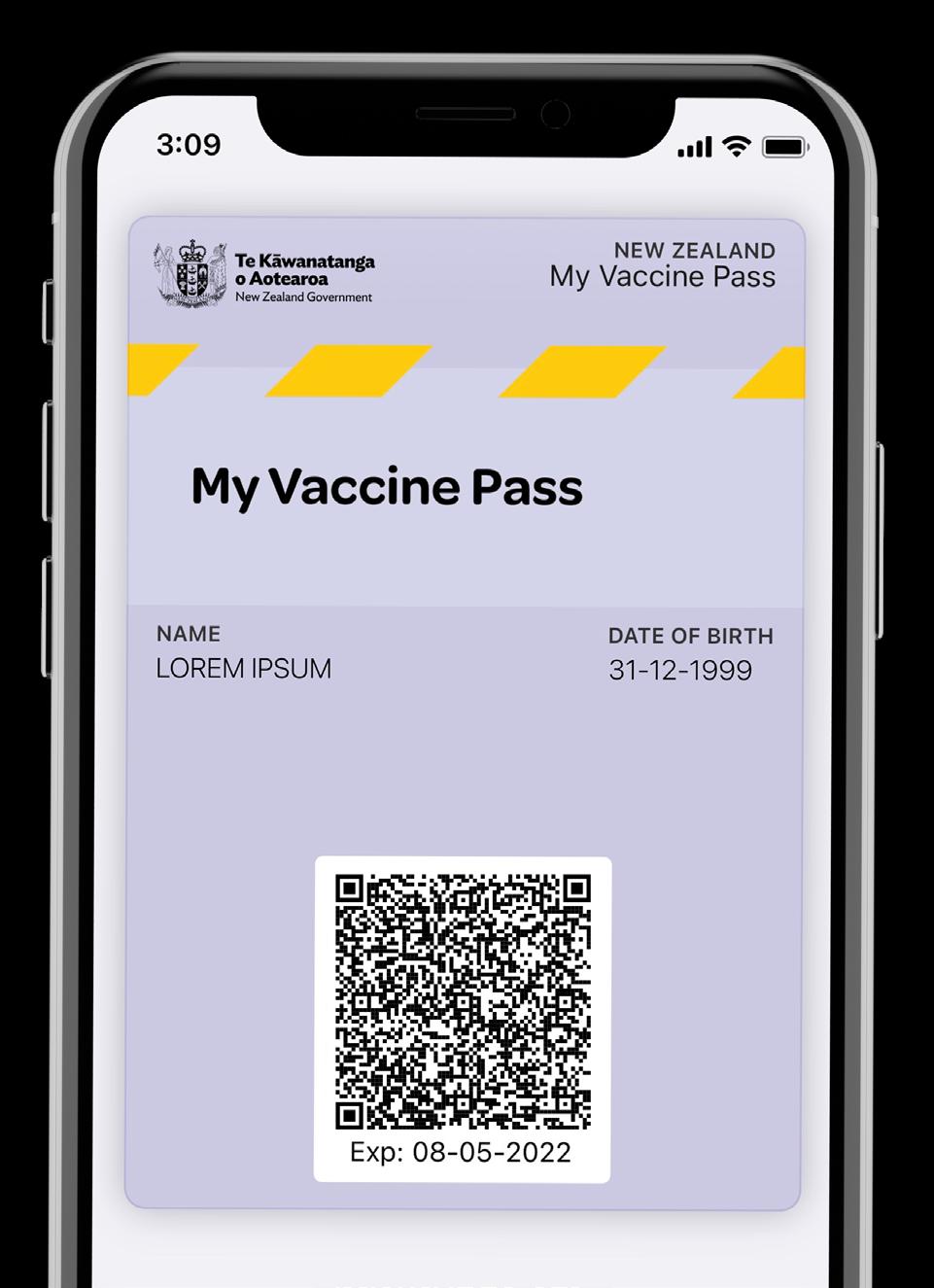
3 minute read
Keeping people safe
Given the high numbers of people that may travel through marae, practical steps will help to keep people safe such as:
Serving kai
• Contact tracing – using the NZ COVID
Tracer app or manually recording attendees’ details (including name, contact details and times present). • Cleaning surfaces in between one ope departing and the next ope arriving • Asking people with COVID-19 symptoms to stay home. • Use of face coverings where appropriate. • Modifying tikanga that involves close contact – like hongi and harirū.
You can serve kai. Decisions about how to serve kai will be made by Marae Kōmiti. As some marae have already adopted, options like takeaway lunches or outside dining could be considered, particularly for groups including non-vaccinated people. If you are serving or handling kai you must always wear a face covering.
Contact tracing
If someone has tested positive for COVID-19, the Ministry of Health and district health boards (DHBs) will contact people who may have had exposure to the virus. This process is contact tracing. The NZ COVID Tracer app helps you keep track of where you have been. Using the app is one thing we can all do to help contact tracing go faster and stop COVID-19 from spreading. You can download the app for free from your device’s app store. Use the NZ COVID Tracer app to: • scan QR codes to create a private digital diary of the places you visit
Contact tracing is one of our best tools to limit the spread of COVID-19
• use Bluetooth tracing to keep a record of the people you have been near. Bluetooth tracing is entirely anonymous. It cannot track your movements. No one will ever see who you have been near, even if you test positive for COVID-19 • register your contact details in the
‘My data’ section so contact tracers can get in touch if they need to • add a manual entry if you cannot scan a QR code — you can view and edit your diary at any time. If you do not use the app, use whatever method works for you, like the NZ COVID Tracer booklet or your own paper notebook. Encourage your family, whānau and friends to do the same. Keep track of: • where you went • when you went there • who you met. You can download the NZ COVID Tracer booklet here: Covid19.govt.nz/health-andwellbeing/contact-tracing/nz-covidtracer-booklet
My Vaccine Pass and the Verifier App
• At all colours of the COVID-19
Protection Framework, marae remain open for people with a My
Vaccine Pass. Tamariki can be admitted without vaccine passes. • My Vaccine Pass is an official record of your COVID-19 vaccination, or exemption, status for use within
Aotearoa. • Vaccine passes include a person’s name, date of birth and a QR code. • Marae should check attendees’ vaccine passes at or near the point of entry. Checking the My Vaccine
Pass QR code with a verifier app is the only way to confirm the authenticity of a My Vaccine Pass. • The Ministry of Health has launched a free verifier app called NZ Pass
Verifier which is available on the App
Store and Google Play, to scan and verify vaccine passes. • At large gatherings where marae are unable to verify every My Vaccine
Pass, you can spot check vaccine passes. • It is up to manuhiri to present only their own vaccine passes. Marae are not required to check ID, but they may request it. • Marae should make reasonable efforts to ID tamariki under 12 years and 3 months. This might include asking tamariki their age, date of birth or year at school.
Face coverings
• Face coverings can help reduce the spread of COVID-19. They stop droplets spreading when someone speaks, laughs, coughs or sneezes.
This includes someone who has
COVID-19 but feels well or has no obvious symptoms. • The Delta variant is more transmissible by droplets, so face coverings are a way we can protect ourselves and each other. At all traffic light colours, decisions about the use of face coverings will be made by Marae Kōmiti. • Some people who have a disability or health condition may not be able to wear a face covering safely. If you cannot wear one, you can get an exemption card. You can show your exemption card when needed. • You can request a card from the
Disabled Persons Assembly NZ by contacting them on 04 801 9100 or emailing them at info@dpa.org.nz




